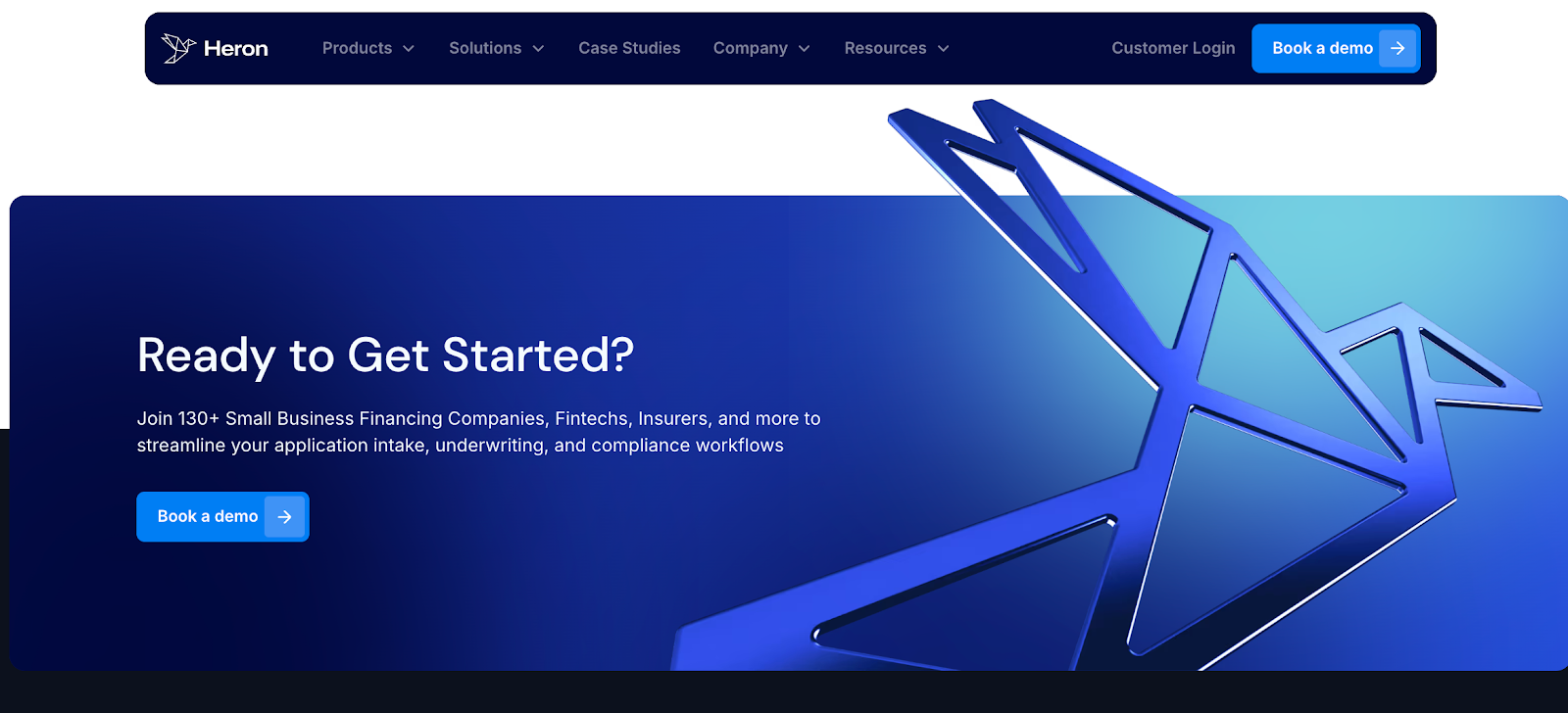Before approving a deal, you need to know more than what the financial statements show. A business’s online presence can reveal a lot about its stability, reputation, and credibility.
Web presence analysis helps funders review how a company appears across the internet, from websites and social media to online reviews and public listings. It’s an easy way to confirm if a business is active, trusted by customers, and still operating as claimed.
For funders, this kind of verification goes beyond marketing. It’s about risk. Outdated websites, negative reviews, or inactive profiles can point to operational or financial issues long before they show up in bank statements.
Let’s look at how web presence analysis works and why it matters for funding decisions.
What Is Web Presence Analysis?
Web presence analysis helps funders evaluate how a business presents itself and operates online. It’s a fast way to verify legitimacy, confirm activity, and detect potential risks before making funding decisions.
The process involves checking a company’s website, social media accounts, online reviews, and public records to see if the business is active and consistent across platforms.
A strong, active online footprint, such as a working website, current contact details, and engaged customer interactions, suggests that the business is healthy and well-managed.
When combined with financial data, this information gives funders a complete picture of how the company runs and whether it’s likely to remain stable after funding.
Web Presence Analysis Checklist: What Funders Should Look For
Every business nowadays has its own presence on the Internet. But which areas of their online presence do you need to check to properly decide whether they're worth funding or not?
Let's identify areas to focus on during a web presence analysis.
Business Website Legitimacy
A real, functioning website is one of the first signs of an active business. Check that the site is live, current, and includes contact details, service descriptions, and updated content.
A broken website or outdated pages can point to poor management or inactivity.
Pay attention to whether the website looks maintained — for example, updated copyrights, recent blog posts, or working forms. These small details signal that the business is still operational.
Social Media Activity
Social media shows whether a business is active and engaging with real customers. Platforms like LinkedIn, Facebook, or Instagram can reveal important red flags or confirm that the business is legitimate.
Check for regular posts, customer responses, and signs of current operations. If the company hasn’t posted in months or receives negative comments without replies, it might be struggling.
Online Reviews and Reputation
Customer reviews offer direct insight into how a business operates. Patterns of complaints about refunds, product quality, or service issues may point to operational or financial trouble.
Look for consistency in how the company handles negative feedback. A professional business will respond and resolve issues, while ignored complaints may signal internal problems.
Owner’s Digital Footprint
A business’s reputation usually says a lot about its leaders. Take time to check the owner’s online presence to see if they have a trustworthy background.
Look for their LinkedIn profile or mentions in marketing materials, interviews, or news articles. This helps you understand who they are and how they present themselves in public.
Also, search for negative media coverage, legal disputes, or unresolved controversies linked to leadership, as these can reveal potential risks long before they affect performance.
Adverse Media
Adverse media, or negative news, refers to information from news and online sources that suggests a person or business might pose a financial or reputational risk.
Search the business and owner names in trusted news sites, online forums, and regulator pages. Use keywords like “fraud,” “lawsuit,” or “scam,” and check blogs or social media for any negative mentions or discussions that raise concerns.
Pay attention to repeated complaints or credible reports of wrongdoing, as these can signal deeper issues that may affect the business’s credibility or stability.
Why Should Funders Check the Online Presence of a Business?
When you review a business, it’s not enough to rely only on financial records. Let's talk about the benefits of doing a full check on a business's online presence:
Assess Reputation Through Public Feedback
Customer feedback is a good indicator of a business's relationship with its target audience. Positive reviews and quick responses to complaints reflect accountability and strong customer service.
When you see patterns of unresolved issues or poor communication, that’s a signal to investigate further.
For instance, a business with a history of late deliveries or refund disputes might pose a repayment risk.
Detect Fraud And Inconsistencies
Comparing what a company says with what you find online helps you spot problems early. A full online presence analysis that includes social media activity, customer reviews, and business listings can reveal signs of dishonesty.
For example, if a local business claims to have several stores in the area but only one appears online, that’s a red flag worth checking.
Online data can also expose fake business names, fake websites, false reviews, or exaggerated claims. Finding these signs helps you avoid funding businesses that misrepresent themselves.
How Heron Helps Funders Verify Web Presence in Minutes
Your team was hired to fund deals, not play online detective. But that’s what most underwriting teams end up doing anyway.
Each new application turns into a digital scavenger hunt. Someone is scrolling Google search results, trying to confirm that the business is not labeled “permanently closed.”
Someone else is checking Facebook or Instagram for recent activity. Another is digging through Yelp reviews to see if customers are still happy.
By the end of it, your team has opened ten tabs, spent half the morning chasing links, and still isn’t sure what’s real.
Manual research eats away at the time that should be spent reviewing deals. And the more websites your team checks, the easier it is for red flags to slip through unnoticed.
Heron is an automation tool designed to help high-volume MCA funders and brokers scale deal flow without scaling headcount.
The goal is to free underwriting teams from time-consuming tasks, like web presence verification, so you can focus more on funding deals.
That’s why Heron developed a Web Presence Verification tool that can save your team from this time-consuming task.
Check Online Presence Across the Entire Web in Seconds
Heron’s Web Presence Verification tool gives your team a full picture of each business in seconds. With a single API call, you can run a complete online presence audit that reviews both the business and its owners.
The tool gathers data from across the web, including social media profiles, online directories, and review platforms, so you can confirm activity, consistency, and legitimacy quickly.
It also examines social media presence on Facebook, Instagram, and LinkedIn to see how the business interacts with customers. You can view activity patterns, customer replies, and overall user behavior.
Catch hidden online risks instantly. Schedule your demo today!
Analyze Reviews and Customer Sentiment Automatically
Reading reviews by hand takes a lot of time. Heron gathers and reviews feedback from major sites like Google, Yelp, and the Better Business Bureau in one place.
It tracks changes in ratings, how often reviews appear, and the tone of feedback to spot red flags you might miss.
For example, if a business drops from four stars to two within a few weeks or receives a sudden wave of refund complaints, you’ll see that pattern instantly.
These early signals help funders identify operational or service issues before they grow into financial risks.
Review Both the Business and Its Owners
Due diligence isn’t complete without checking the people behind the business. Heron reviews both the company and its leaders to confirm their credibility.
It verifies their social activity, work history, and any negative media connected to them. This helps confirm that leadership is open and consistent online. It can also reveal risks, like owners with bad reputations or questionable actions, that could affect stability.
With Heron, you get a clear and balanced view of the business and the people running it.
Do a Full Business Web Presence Check Easily With Heron

Heron helps high-volume MCA funders and brokers move faster without adding more staff. It automates the manual parts of underwriting and deal management so your team can focus on funding, not paperwork.
The platform handles business bank statement scrubbing, data collection, and verification automatically while sending clean, structured information straight into your CRM.
With seamless integration, there is no need to rebuild your systems or train on new software. Heron connects smoothly with the tools and other loan software your team already uses.
Heron's new Web Presence Verification feature gathers data from trusted online platforms and gives you instant visibility into a business’s online reputation and activity.
It checks web presence, social engagement, and reputation details across multiple sources at once. This gives funders a clear and accurate picture before making a decision.
- Before Heron's web presence: Spending 10 minutes per review across 5,000 applications adds up to 833 hours every month, equal to 5 full-time employees doing manual website checks.
- After Heron's web presence: The same number of applications takes only 2 seconds each, returning 833 hours to your team every month.
Book your demo today and see how Heron automates checks across every site, instantly.
FAQs About Web Presence Analysis
Why should funders check a business’s online presence?
A business’s online footprint helps funders confirm that it’s real, active, and trustworthy. Reviewing websites, reviews, and social profiles can reveal warning signs, like negative feedback, fake listings, or inactive operations, that might not appear in financial statements. This helps underwriters spot risks early and make more confident decisions.
What does a web presence check include?
A proper web presence analysis reviews the company’s website, social media accounts, online reviews, and business directories. It also checks for recent activity, consistency in contact details, and any adverse media about the business or its owners. Together, these details show whether a company is legitimate and operating as claimed.
How does automation help with web presence verification?
Manually checking websites, social media pages, and reviews for every application takes hours. Automated tools like Heron’s Web Presence Verification do this instantly, scanning across multiple sources to confirm that the business and its owners have a credible online footprint. It reduces manual research time and prevents funders from missing hidden red flags.
Do a Full Business Web Presence Check Easily With Heron
Book your demo today and see how Heron automates checks across every site, instantly.


